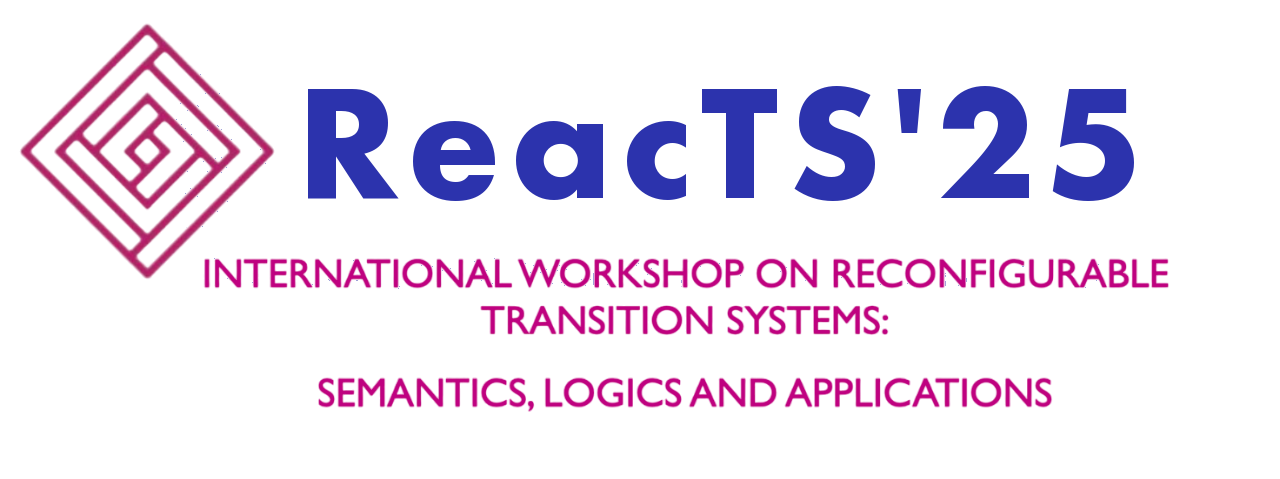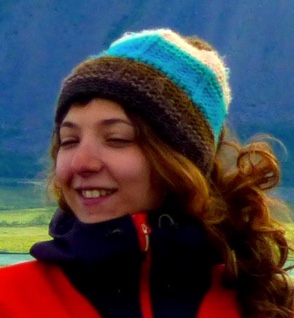November 11, 2025
Toledo,
Spain
Invited Talks
Alessandra Palmigiano
Categories & categorization
Alessandra Palmigiano is a professor in Logic at the department of Ethics, Governance and Society of the Vrije Universiteit Amsterdam. Before she joined the VU she was affiliated to the Technical University Delft and the University of Amsterdam. She obtained her PhD at the Universitat de Barcelona in 2005.
Abstract: Categories are cognitive tools that humans use to organize their experience, understand and function in the world, and understand and interact with each other, by grouping things together which can be meaningfully compared and evaluated. They are key to the use of language, the construction of knowledge and identity, and the formation of agents’ evaluations and decisions. Categorization is the basic operation humans perform e.g. when they relate experiences/actions/objects in the present to ones in the past, thereby recognizing them as instances of the same type. This is what we do when we try and understand what an object is or does, or what a situation means, and when we make judgments or decisions based on experience. The literature on categorization is expanding rapidly in fields ranging from cognitive linguistics to social and management science to AI, and the emerging insights common to these disciplines concern the dynamic essence of categories, and the tight interconnection between the dynamics of categories and processes of social interaction. However, these key aspects are precisely those that both the extant foundational views on categorization struggle the most to address. In this talk, I will discuss by way of examples how methods, insights, and techniques pertaining to structural proof theory, algebraic logic, duality theory, and category theory in mathematics can be used in synergy with one another to develop an overarching logical theory of categories and categorization, on which a range of developments can be based, spanning from new logical tools for verification to new approaches in explainable AI.
Amanda Vidal
Amanda Vidal is a postdoctoral fellow at the Institute of Computer Science of the Czech Academy of Sciences. Her main research interests lie in the areas of Non classical logic and its applications. She has done several contributions on modal and other extensions of many-valued logics, concerning aspects of computability, axiomatizability and related algebraic studies, and also in their applicability in areas of AI by studying their practical efficiency and their relation with weighted structures from computer sciences. She has worked also in logical approaches to argumentation theory and recommendation systems, in theoretical studies on SAT and optimization variants of this problem, and on the algebraic approach to the constraint satisfaction problem.
Between Necessity and Vagueness: Decidability in Modal Many-Valued Logics
Abstract: The study of modal many-valued logics is motivated by the well-established usefulness of both (classical) modal logic and fuzzy logics. Modal logic provides fundamental tools for reasoning about necessity, possibility, knowledge, time, and obligation, with broad applications in philosophy, computer science, and artificial intelligence. Fuzzy logics, in turn, offer a formal framework for handling graded truth, vagueness, and uncertainty. Their combination gives rise to modal many-valued systems capable of expressing modalities under non-classical truth conditions, thus yielding a richer and more flexible setting for formal reasoning—while, hopefully, keeping complexity at bay. Modal many-valued logics, semantically defined through Kripke models evaluated over suitable many-valued algebras, exhibit distinctive behaviors compared to their classical counterparts and require specific methodologies for their analysis. In this talk, we will focus on the decidability question—a central and still largely open issue. While classical modal logic is decidable, it is not immediate that its fuzzy counterparts are so. We will survey both resolved and unresolved problems on the topic, considering the main modal extensions of the three principal fuzzy logics, as well as some cases involving well-known frame restrictions. Since no uniform approach to decidability has yet been achieved, we will review several results and techniques that have contributed to the field.

 Wei Hunag on
Wei Hunag on  Alex Garcia on
Alex Garcia on  javier alamo rodriguez on
javier alamo rodriguez on  Greta Schölderle Möller on
Greta Schölderle Möller on  Aki on
Aki on  Miguel Ángel Sanz on
Miguel Ángel Sanz on 
